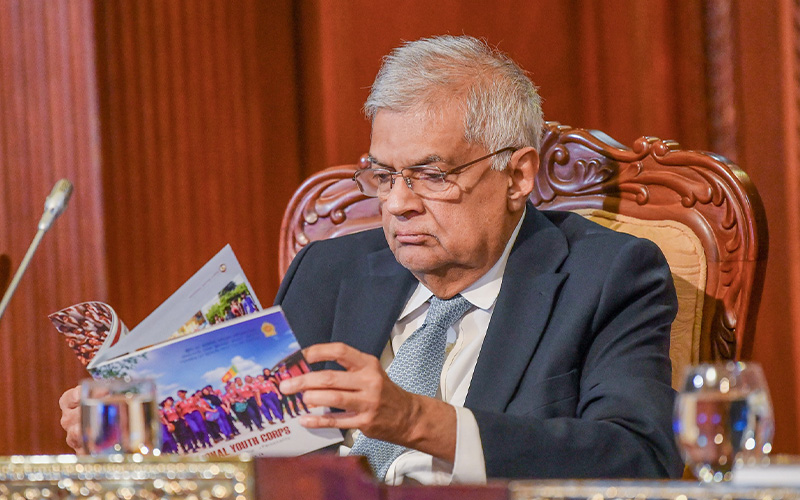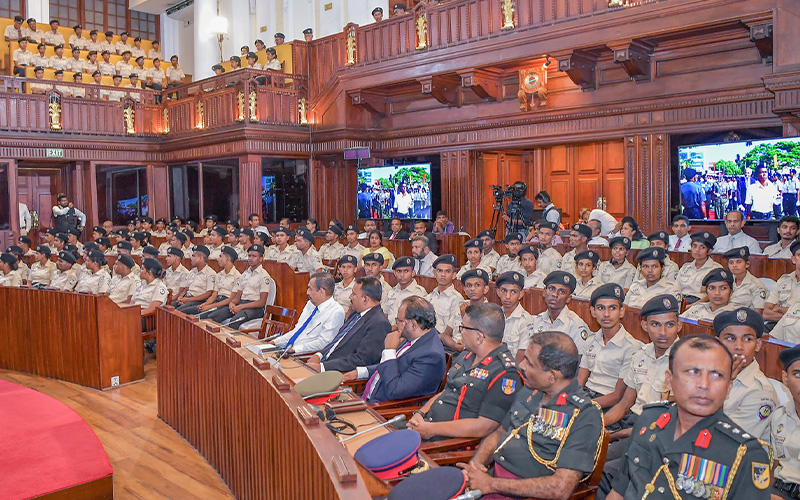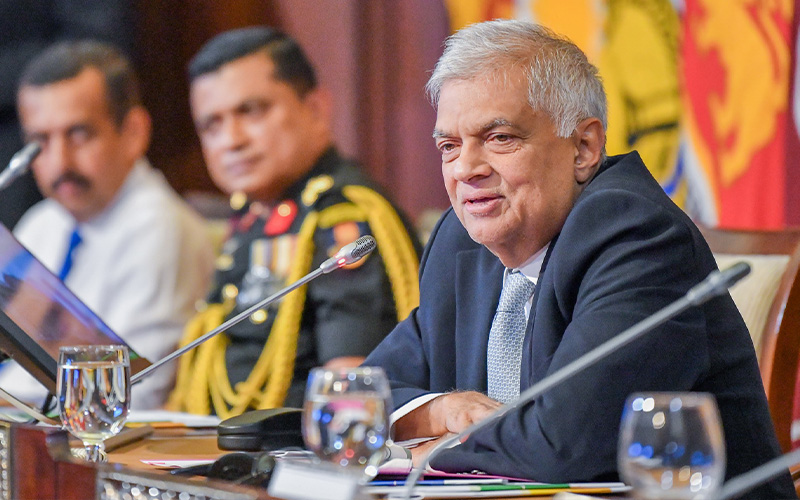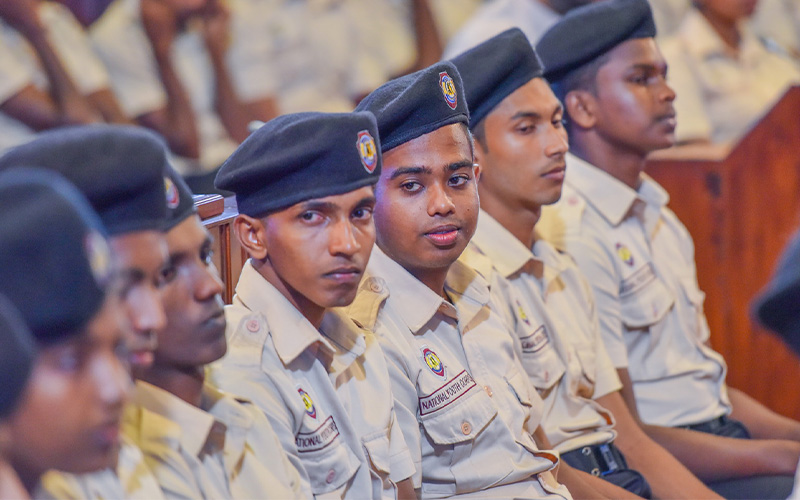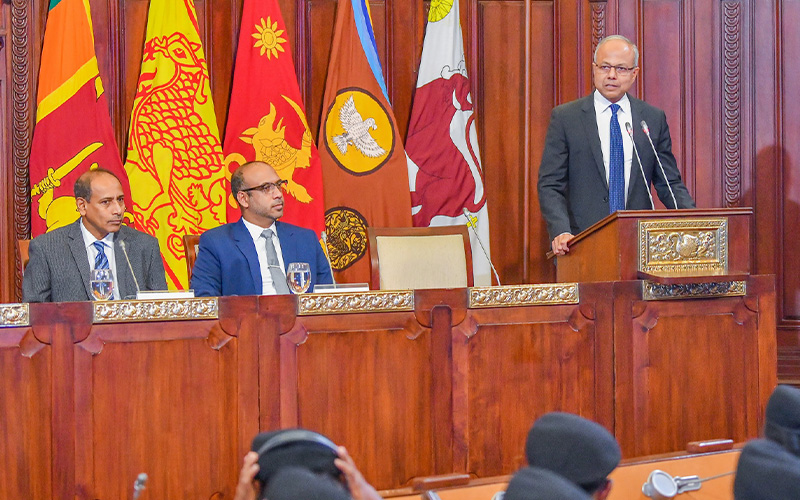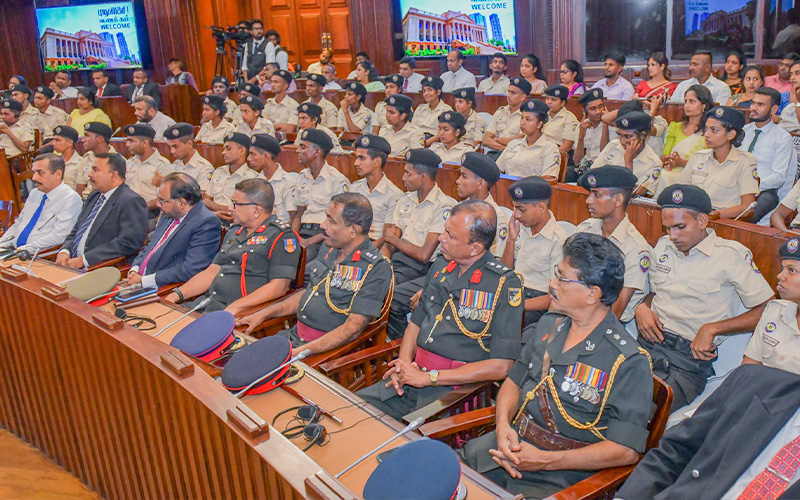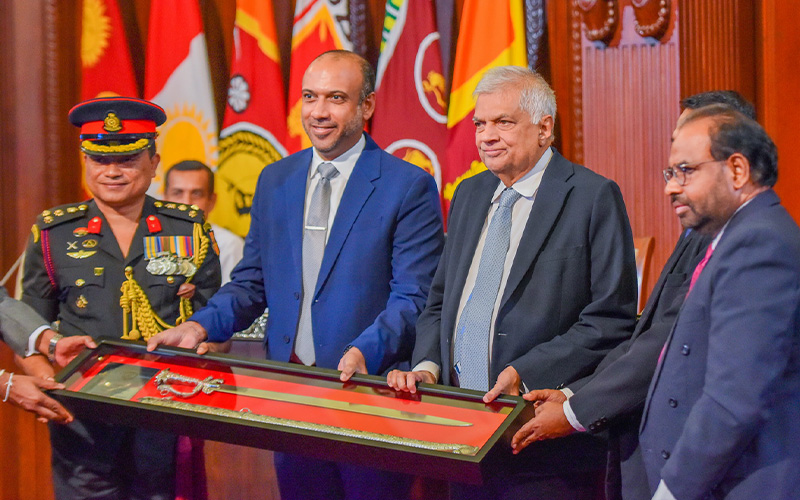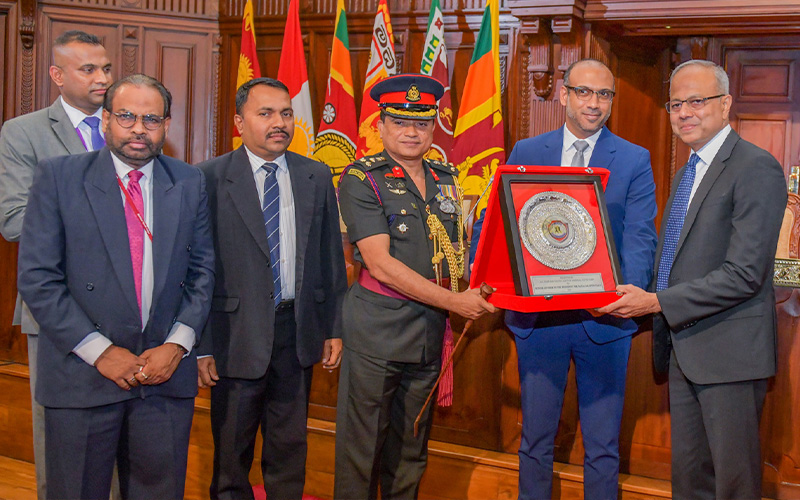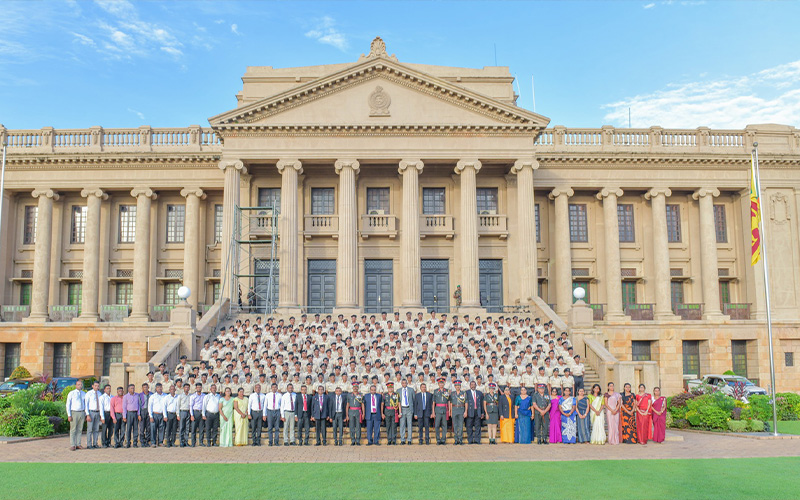Fostering a Knowledge-Empowered Youth Generation Ready for Future Challenges -President
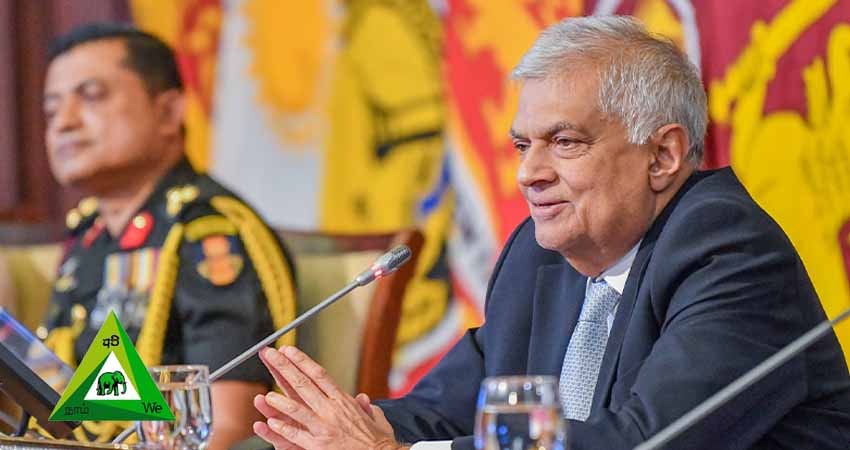
President Ranil Wickremesinghe emphasized the need to cultivate a generation of youth equipped with the knowledge and training necessary to meet future challenges.
He also highlighted that an economic program aimed at generating substantial income for the youth of the country is currently being implemented.
President Wickremesinghe shared these thoughts during a meeting with members of the National Youth Corps (NYC) at the Presidential Secretariat yesterday (12). During the event, NYC Director Brigadier Sujeewa Rathnayake presented a souvenir to President Wickremesinghe.
Expressing his ideas further, President Ranil Wickremesinghe stated,
“It has been 22 years since the Youth Corps was established. It was originally designed to align with the economic and social system of that era.
However, the Youth Corps must evolve with the times. To ensure a prosperous future for our youth, we must also focus on improving their income opportunities. Necessary steps should be taken to adapt and transform the Youth Corps accordingly.
Young people prefer jobs with high income potential, so we must develop plans to create such opportunities. The Economic Transformation Law has been introduced in Parliament to address this. By 2027, this law aims to reduce unemployment, and by 2035, it will establish several high-income employment sectors, paving the way for a developed state by 2048.
The youth corps students here today will not even be 50 years old in 2048, and we need to implement programs to create a new economy for their future. We should look to the development models of countries like Vietnam, Thailand, and Malaysia, which are based on export economies. Therefore, our focus should be on building an export-based economy.
Additionally, we should concentrate on areas that can be developed rapidly. An urgent program should be implemented to advance sectors such as tourism, agriculture, and information technology. It is essential to direct the youth corps students toward these areas.
We must establish a green society and a green economy to prepare a young generation equipped with the knowledge and training to meet future challenges. By providing professional training, we can elevate the country’s economy to a new level and create a skilled youth workforce.”
Chief of Staff to the President and National Security Advisor Sagala Ratnayaka,
The Youth Corps was established in 2002 under the concept of then-Prime Minister Ranil Wickremesinghe to prepare youth for the future. Initially starting with eight centres, the Youth Corps has now expanded to 57 centres. It selects young people who are suited for the future world and guides them toward leadership roles capable of meeting challenges.
However, after a change in government, the Youth Corps concept was not further developed. A better economy can be achieved if the youth trained by the Youth Corps are instilled with proper values and contribute to the national economy.
In 2015, Ranil Wickremesinghe, as Prime Minister, revitalized the Youth Corps, empowering it once again.
The economic crisis similar to the covid pandemic that affected the country after 2020 did not differentiate between the wealthy and the poor; everyone suffered equally. During that time, no leader stepped forward to rescue the country from the crisis. In response to this situation, the current President, Ranil Wickremesinghe, took charge and worked towards creating an inclusive economy. He is striving to create job opportunities for the youth and to design a program that enables them to contribute to Sri Lanka’s economy.
The Youth Corps can play a crucial role in this effort by producing talented young individuals in various fields necessary for the country’s development. The Youth Corps centres are dedicated to providing the necessary training. Young people should be prepared to excel in sectors such as ports, tourism, computers, and languages. The Youth Corps can significantly support this initiative. Additionally, it can guide youth to investigate and address future climate change challenges.
There are plans to transform the Sri Lankan Armed Forces to adapt to future challenges, creating teams equipped for the future. Efforts are underway to provide them with modern technical and linguistic knowledge. Additionally, attention will be given to addressing future environmental threats and finding solutions for them. Sri Lanka is committed to preserving the territorial integrity of the Indian Ocean region and ensuring the safety of shipping routes.
NYC Chairman Chaturanga Udawatta, NYC former Director Major General Channa Goonetilleke and several others were present at the event.
